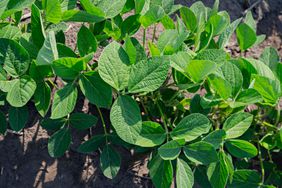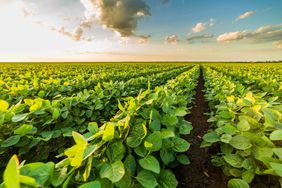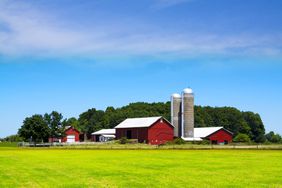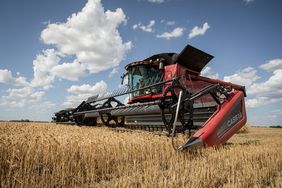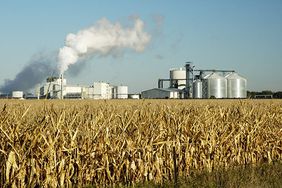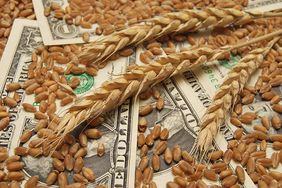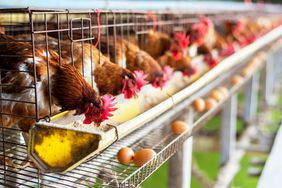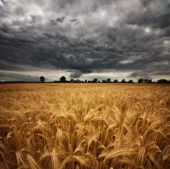:max_bytes(150000):strip_icc()/Smart_Spraying_BBSF_1-2-2000-9fa822920d6d48bdb31ecfa5a1c7f90e.jpg)
BASF has released its ten-year agricultural innovation outlook. BASF officials say it supports food security for future generations while minimizing farming's impact on the climate and the environment. BASF is focused on improving agricultural outcomes in major crops that include:
- Wheat
- Canola
- Soybean
- Corn
- Cotton
- Rice
- Fruits and vegetables
According to estimates from the Food and Agriculture Organization of the United Nations (FAO), these crops account for more than 50% of the world's farmland. This is why innovations applied on such a large scale have the potential to make farming even more productive and sustainable, say BASF officials.
Within these major crops, BASF continues to innovate in the next decade across its pipeline that includes:
- Seeds and traits,
- Seed treatments
- Biological and chemical crop protection
- Digital farming solutions
SCN Trait, Smart Spraying On The Way
According to the Plant Health Initiative, soybean cyst nematode (SCN) is the leading cause of soybean yield loss in North America. In the U.S., SCN contributes to an estimated $1.5 billion in economic losses for soybean fields each year.
Soybean farmers will benefit from a BASF novel trait in development for tolerance to nematodes. The Nematode Resistant Soybean (NRS) trait represents the next step in soybean seed innovation, helping to minimize the impact of the pest on yield loss. This new NRS trait technology can help soybean farmers protect their seed and their yields to get the most out of every acre, say BASF officials.
The technology offers real-time, automated pre- and post-emergence weed identification and management. Smart Spraying reduces the risk of weed resistance by using specifically developed herbicide formulations and optimized rates, ensuring that herbicide is applied only where and when needed, say BASF officials. Through spot application, it can reduce herbicide volume use by up to 70%, depending on prevailing field conditions and weed pressure, say BASF officials. The Smart Spraying solution is expected to launch in North America, Brazil and Europe within the next 18 months.
The value of the innovation pipeline has an estimated peak sales potential of more than €7.5 billion ($8.14 billion). BASF officials add it systematically incorporates sustainability criteria into its agricultural research. In 2021, it spent about €900 million ($977.08 million) in research and development (R&D) in the Agricultural Solutions segment, representing around 11% of the segment's sales. In 2022, BASF will continue to invest in research and development of agricultural innovations at a high level, say company officials.
Innovation and Sustainability
"Innovation in agriculture is essential to enable sustainable food production," said Livio Tedeschi, president of BASF Agricultural Solutions, in a news release. "We need to find the right balance for better yield – yield produced in ways that meet the demands of future generations, has minimal impact on the environment and helps farmers make a living. Our innovations enable both more productive and more sustainable farming – key levers identified by the United Nations and incorporated in their Sustainable Development Goals. At BASF Agricultural Solutions, we made this a priority and committed to clear and measurable targets to boost sustainable agriculture by 2030."
"Over the past decade, we have developed a broad portfolio that leverages all technologies needed for a more sustainable future of agriculture," said Peter Eckes, president R&D and regulatory of BASF Agricultural Solutions, in a news release. "As a trusted and reliable innovation partner, our research for agricultural solutions reflects a long-term strategy that gives farmers stability in a changing world and allows them to increase yield and reduce the impact of farming on natural resources."
"BASF strives to make a positive impact on our customers, environment and society by applying our knowledge, our passion, and a collaborative approach to help farmers achieve a better and more sustainable yield," said Paul Rea, senior vice president, BASF Agricultural Solutions North America. "Tools and technology such as the NRS trait and Smart Spraying solution are necessary to help achieve this goal."
